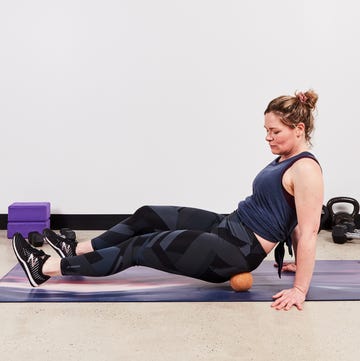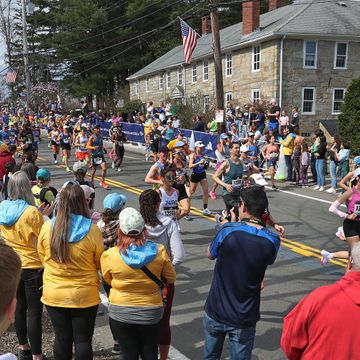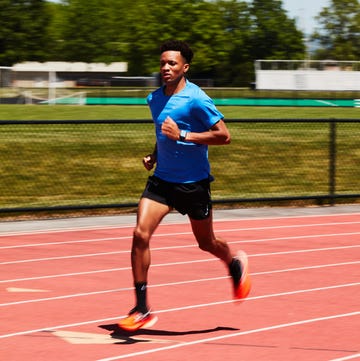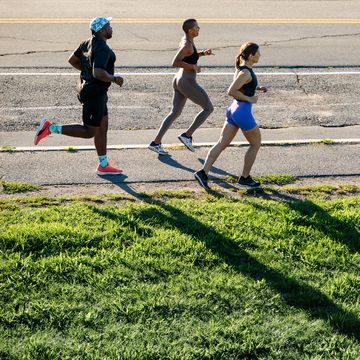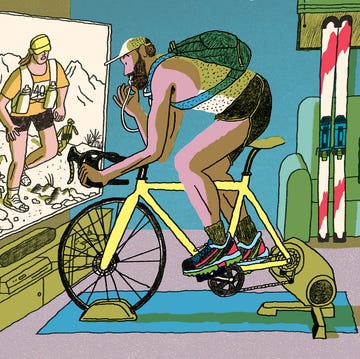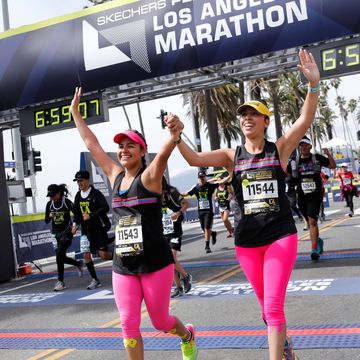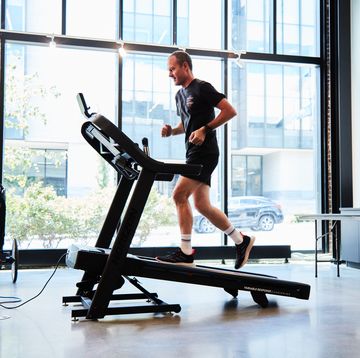By now you’re probably getting a little bored of the steady stream of research showing that running (and exercise in general) makes you smarter, as well as faster. Fair enough. But a slightly different twist is that researchers at Johns Hopkins have just published some neat data in PLOS ONE showing that a half-hour run also boosts “motor skill acquisition.”
What is motor learning? In this case, the task they tested is something called the Sequential Visual Isometric Pinch Task (SVIPT). You pinch a little force sensor between your thumb and index finger, and the harder you pinch, the farther you move a cursor across the screen of a computer. The task involves moving the cursor as quickly and accurately as possible to five different locations on the screen; performance was measured by looking at improvements in the relationship between speed and accuracy of four sets of 30 trials.
The basic result is that subjects got better at the SVIPT if they ran at a moderate pace for 30 minutes immediately before the testing session. If they rested for an hour after running, then they were still better than the no-exercise control, but not as good as the group that was tested immediately after running. The biggest improvements were in how accurately they controlled the cursor, rather than their speed.
The second part of the study was a multi-day experiment where subjects did the same protocol on four different days (except nobody ran on the fourth day before the motor skills sessions). Once again, the running group outperformed the control group, even on the day when neither group ran. That shows that running doesn’t just give a temporary performance boost; it actually helps you learn the motor skill better.
How does this happen? The researchers mention two main theories: psychological models suggest that exercise boosts “arousal” and basically helps you focus better; “neuroendocrinological” models, on the other hand, attribute the effect to a rise in brain chemicals like brain-derived neurotrophic factor (BDNF), serotonin, dopamine, and so on. The two explanations likely have some overlap, but the researchers suggest that the brain-chemical explanation is consistent with the fact that the effect seemed to be fading away after an hour of rest.
So what’s the takeaway? One big possibility is stroke rehab, where there’s already a bit of preliminary research showing that regular aerobic exercise helps patients regain motor function. Timing the exercise right before rehab could have better effects. And hey, if you’re gearing up for an important video game match, or trying to iron the kinks out of your golf swing, maybe a good run is what you need.
* * *
Read the Sweat Science book, and follow the latest posts via Twitter, Facebook, or occasional email digest.


